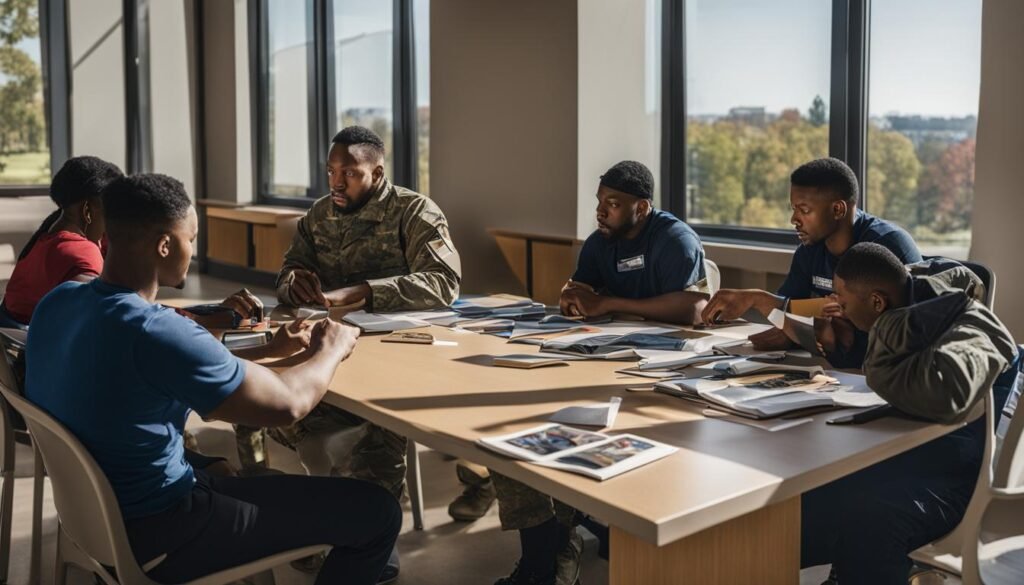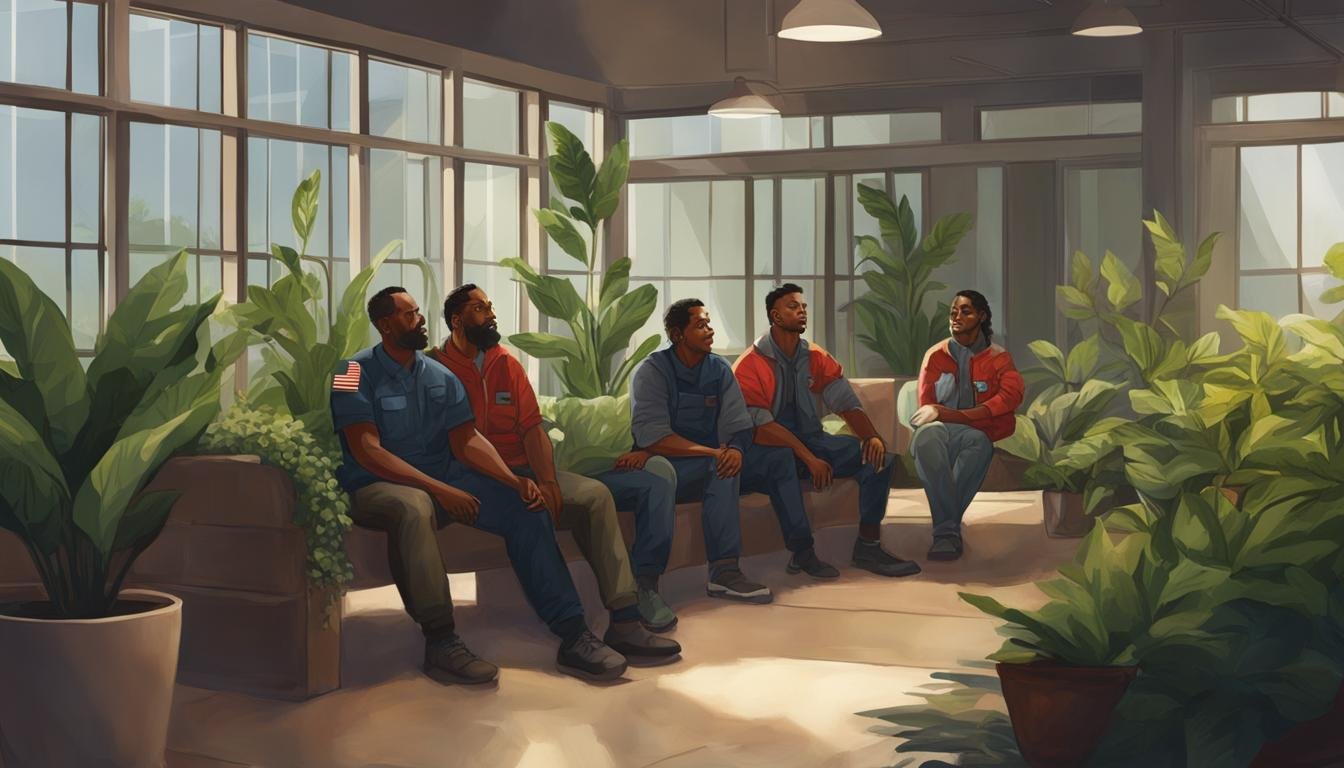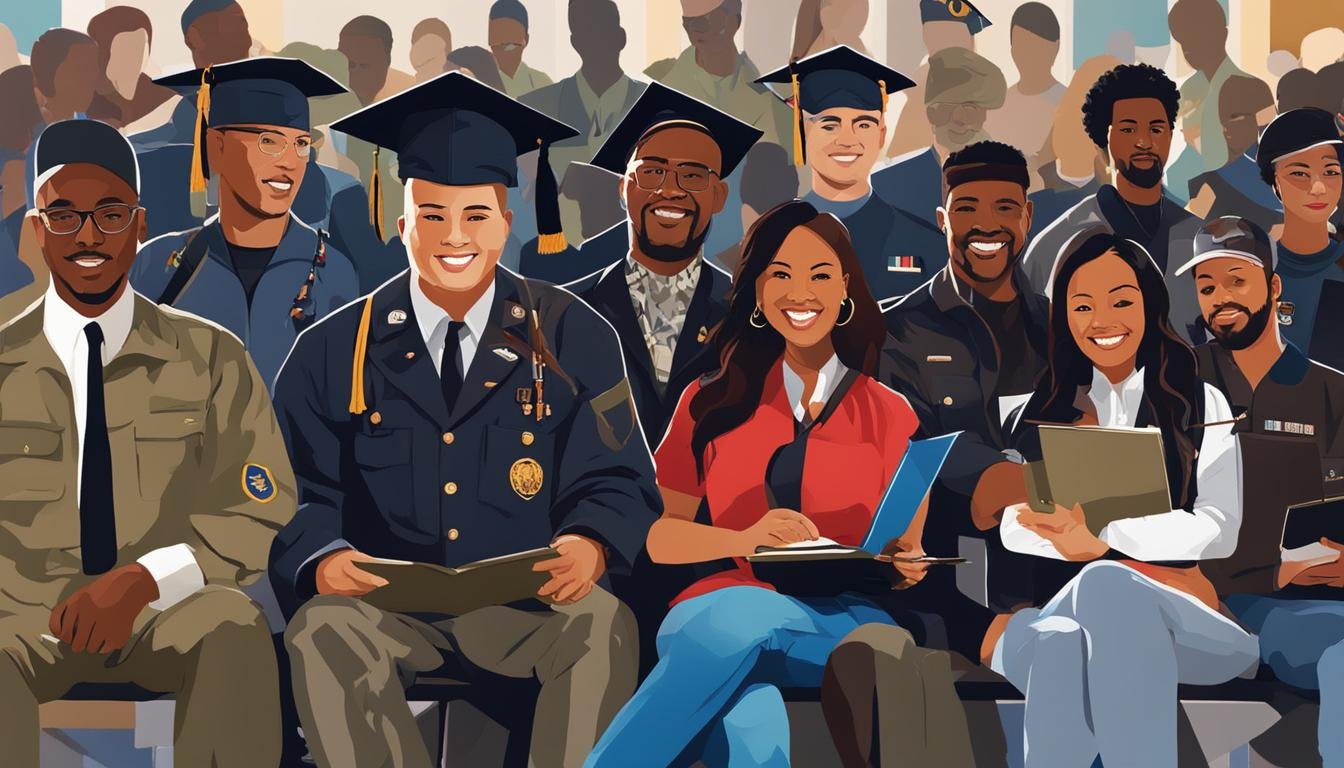Veterans face unique challenges when transitioning from military service to college life. To support their mental health and well-being, counseling and mental health services are available on college campuses. These services cater specifically to student veterans, providing tailored support and resources to help them overcome the difficulties they may encounter during their academic journey.
Key Takeaways:
- Student veterans have access to counseling and mental health services on college campuses.
- These services provide tailored support and resources to help student veterans overcome challenges.
- Support programs like VITAL and VSOC assist student veterans in adjusting to college life.
- Make the Connection website features personal stories from student veterans who have overcome mental health challenges.
- Student veterans may face barriers when seeking mental health support, but there are resources available to help them overcome these challenges.
Support Programs and Resources for Student Veterans

Student veterans on college campuses have access to various support programs and resources to ensure their mental health and overall well-being. These programs cater specifically to the unique challenges faced by veterans during their transition from military service to college life. By providing tailored support and resources, these programs aim to help student veterans overcome difficulties and thrive academically.
Veterans Integration to Academic Leadership (VITAL) Program
The Veterans Integration to Academic Leadership (VITAL) program is one such support program available to student veterans. Its primary goal is to facilitate the successful integration of veterans into campus life. VITAL offers assistance in adjusting to the college setting, culture, and experiences. It recognizes the distinct challenges veterans may face, including transitioning from a structured military environment to the more independent and diverse college environment.
VetSuccess on Campus (VSOC) Program
Another valuable program for student veterans is the VetSuccess on Campus (VSOC) program. This program provides on-campus benefits assistance and counseling to veterans and their qualified dependents. VSOC aims to support student veterans in completing their education and transitioning into viable careers. It offers services such as academic and career counseling, guidance on accessing VA healthcare and benefits, and help navigating the job market.
Make the Connection Website and Support Groups
The Make the Connection website is a valuable resource for student veterans seeking mental health support. It features personal stories from student veterans who have faced mental health challenges and found ways to recover and thrive. These stories help to create a sense of community and inspire others to seek the help they may need. Additionally, on-campus coffee socials and support groups provide student veterans with opportunities to connect with their peers and find a sense of belonging on campus.
In conclusion, colleges and universities recognize the unique challenges faced by student veterans and offer specific support programs and resources to meet their needs. The VITAL and VSOC programs provide crucial assistance in transitioning to college life, accessing benefits, and navigating the academic and career paths. The Make the Connection website and support groups help student veterans connect with others who have similar experiences and find inspiration for their mental health journey. Through these support programs and resources, student veterans can receive the necessary support to succeed academically and thrive in college.
Are Counseling and Mental Health Services Specifically Tailored for Veterans in College Settings?
Yes, many college settings offer counseling and mental health services specifically tailored for veterans. These campus resources for veterans provide support for the unique challenges and experiences faced by military members transitioning to civilian and academic life. Counseling services can offer a safe and understanding space for veterans to seek assistance.
Overcoming Barriers to Mental Health Support
When it comes to mental health counseling for student veterans, there are a few barriers that they may encounter. One of the main challenges is the stigma surrounding mental health in the military, which can make veterans hesitant to seek help. This stigma can prevent them from accessing the support they need to overcome their mental health challenges.
Additionally, on-campus support services may not always address the unique needs of student veterans. College administrators may lack understanding and experience in working with veteran populations, which can pose obstacles in accessing appropriate care. Awareness and cultural competency in campus mental health services are crucial to ensuring that student veterans receive the comprehensive support they require.
Another barrier is the financial aspect. Student veterans often prioritize their financial stability, which can lead to neglecting their mental health needs. Furthermore, the inflexible appointment scheduling at VA facilities can make it difficult for student veterans to prioritize seeking mental health support. It is crucial for student veterans to identify mental health resources specifically tailored to their needs, such as the VITAL and VSOC programs, which are designed to support their successful academic journey.



